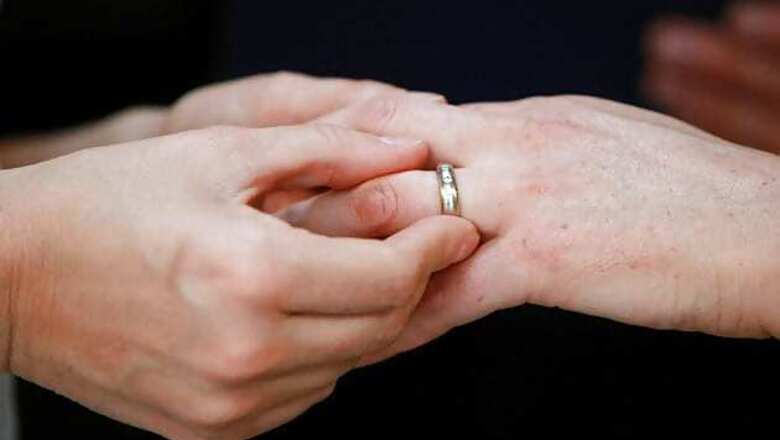
views
Mumbai: A wife cannot be faulted for not living with husband when he brings another woman in the house and she can demand maintenance on this ground, the Bombay High Court has ruled in a divorce case. "Whether or not he (husband) may be entitled under the Personal Law to bring her (second wife), it has no bearing upon the hurt that the wife would feel upon having another wife in the house. In such cases emotional and mental violence is not only apparent, but proved. That itself would entitle any wife to have just cause in not living with her husband and demanding maintenance," ruled Justice Roshan Dalvi.
The judge was hearing a petition last week filed by Irfan Shaikh, challenging the February 6 order of a Family Court in Nasik asking him to pay maintenance of Rs 2,000 each to his wife and child from the date of filing of petition, November 12, 2009. The High Court noted that though the husband claimed that the wife deserted him and he never deserted her even by remarriage, the wife had sent legal notice to him. It was not claimed by the husband. It was also not replied by him. The legal notice requested reconciliation and cohabitation, which was not done.
"Hence it is seen that the husband's case is false and there has been no attempt at reconciliation or cohabitation or conciliation between the parties. That evidence not corroborated is, therefore, an important absent factor. The learned Judge has also rightly considered that the husband deserted the wife in as much as he never paid any maintenance to her and in fact got married to another by which he deserted her," the judge remarked.
Irfan got married to Nilofar on June 3, 2007. They separated on June 17, 2009. The application for maintenance was filed in November 2009. Irfan married again in December 2009. A criminal complaint under Section 498A IPC was filed by the wife on December 24, 2009.
The wife claimed that the husband was a drunkard, he beat her up and her in-laws demanded dowry and ill-treated her. The husband claimed that the wife left the matrimonial home without any cause at all. The evidence was led and the application for maintenance was decided by the family court. The reason for living would, therefore, have to be seen.
Both the parties led evidence of themselves. However, they did not led evidence of any other witness, Justice Dalvi observed. The wife had deposed as per her application under Section 125 of CrPc and her criminal complaint. The husband argued that both are diametrically different.
Whereas, in the application under Section 125, the wife has stated about the conduct and character of the husband being a drunkard and the violence upon her. In the criminal complaint she has stated about the dowry demand and about ill-treatment of the in-laws.
The High Court, however, felt that the family court judge had well considered the intrinsic evidence led by the husband and wife. Justice Dalvi noted, "The court has gone through the complaints. The complaints are not so different. Whereas in the application under Section 125 no allegation is made against the in-laws for demand of dowry, both these facts are mentioned in the criminal complaint for cruelty. All these aspects would have to be considered as a whole at the time of trial which the learned Judge has sought to do."




















Comments
0 comment